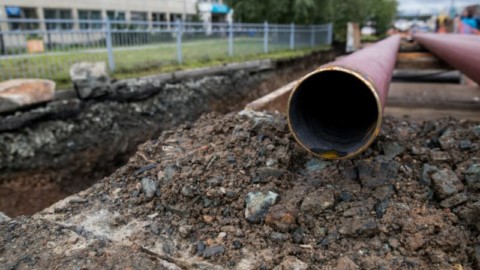In Part 2 of our article looking at pump standards, we take a closer look at organisations that prepare and certify pump specifications.
American National Standards Institute – ANSI
The American National Standards Institute (ANSI) is a private non-profit organisation that oversees the development of voluntary consensus standards for products, services, processes, systems, and personnel in the United States.
The organisation also coordinates US standards with international standards so that American products can be used worldwide.
For example, ANSI made sure that people who own cameras could find the film they need for that camera anywhere around the globe.
ANSI accredits standards that are developed by representatives of standards developing organisations, government agencies, consumer groups, companies and others.
These standards ensure that the characteristics and performance of products are consistent, that people use the same definitions and terms, and that products are tested the same way.
ANSI also accredits organisations that carry out product or personnel certification in accordance with requirements defined in international standards.
Hydraulics Institute – HI
The Hydraulic Institute (HI) is a non-profit industry (trade) association established in 1917. HI and its members are dedicated to excellence in the engineering, manufacture, and application of pumping equipment.
The Institute plays a leading role in the development of pump standards in North America and worldwide.
HI standards are developed within guidelines established by the American National Standards Institute (ANSI). HI members work through a number of technical committees to develop draft standards.
The Institute involves pump users and other interested parties to reach consensus on published standards. HI standards are developed to define pump products, installation, operation, performance, testing, and pump life and quality.
National Fire Protection Association – NFPA
The National Fire Protection Association (NFPA) is a US organisation (albeit with some international members) charged with creating and maintaining minimum standards and requirements for fire prevention and suppression activities, training, and equipment, as well as other life safety codes and standards.
This includes everything from building codes to the personal protective equipment utilised by firefighters while extinguishing a blaze.
FM Global
FM Global is a US-based insurance company, with offices worldwide, that specialises in loss prevention services, primarily to large corporations throughout the world in the Highly Protected Risk (HPR) property insurance market sector.
FM Global is the communicative name of the company, whereas the legal name is Factory Mutual Insurance Company.
The company employs a non-traditional business model whereby risk and premiums are determined by engineering analysis, as opposed to historically based actuarial calculations.
This business approach is centred on the belief that property losses can be prevented or mitigated.
FM Global engineering personnel regularly visit insured locations to evaluate hazards and recommend improvements to their property or work practices to reduce physical and financial risks if a loss occurs.
FM Approvals certifies industrial and commercial products and services for companies worldwide. When a product or service meets the standards of FM Approvals, it is issued the FM APPROVED mark to signify it will perform as expected and support property loss prevention.
Deutsches Institut für Normung (DIN)
DIN, headquartered in Berlin, is the German national organisation for standardisation and is that country’s ISO member body.
There are currently around 30,000 DIN Standards covering nearly every field of technology. One of the earliest, and probably the most well-known, is DIN 476 – the standard that introduced the A-series paper sizes in 1922 – adopted in 1975 as International Standard ISO 216.
It was founded in 1917 as the Normenausschuss der deutschen Industrie (NADI, Standardisation Committee of German Industry).
In 1926, the NADI was renamed Deutscher Normenausschuss (DNA, German Standardisation Committee), to reflect the fact that the organisation now dealt with standardisation issues in many fields, not just for industrial products.
Since 1975, the DNA has been known as DIN and is recognised by the German government as the official national standards body, representing German interests at the international and European levels.
Relevant standards
The various pump industry standards are covered by application, for example fire, oil and gas, process, and general purpose. For the most up-to- date and relevant standard for your application, refer to the bodies responsible for the standard, or contact your local pump supplier.
Make standards a part of your best practices for pump operations.
Read part one of the Pump Standards article series here.
Article courtesy of Kelair Pumps Australia “When Pump Knowledge Matters”. Phone: 1300 789 466 or visit www.kelairpumps.com.au.

















